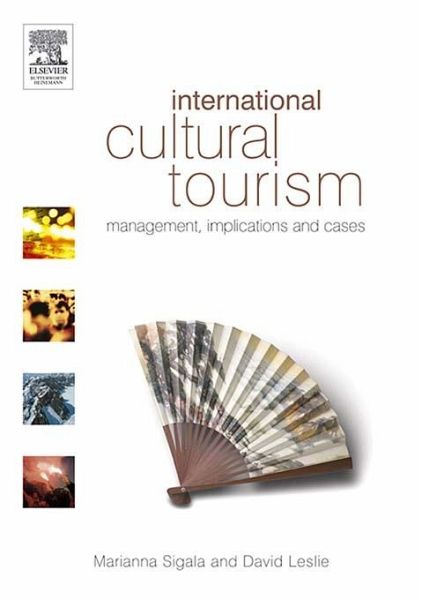
International Cultural Tourism (eBook, PDF)
Versandkostenfrei!
Sofort per Download lieferbar
61,95 €
inkl. MwSt.
Weitere Ausgaben:

PAYBACK Punkte
31 °P sammeln!
International Cultural Tourism: management, implications and cases provides a comprehensive exploration of the management, operations and marketing of cultural tourism attractions and resources in a global context.Topics explored include:* For the first time, an evaluation of the use and transformational impact of global media and new ICT in the management and marketing of cultural tourism attractions and resources. * The changing nature of the global cultural tourism marketplace (including demand, supply, product development and political changes). * Consumer behaviour, profiles and motivatio...
International Cultural Tourism: management, implications and cases provides a comprehensive exploration of the management, operations and marketing of cultural tourism attractions and resources in a global context.
Topics explored include:
* For the first time, an evaluation of the use and transformational impact of global media and new ICT in the management and marketing of cultural tourism attractions and resources.
* The changing nature of the global cultural tourism marketplace (including demand, supply, product development and political changes).
* Consumer behaviour, profiles and motivations of cultural tourists.
* Environmental performance, management and wider issues of social and cultural sustainability.
Written by a team of contributors from Australia, Hong Kong, UK, US, Canada, Mexico, Portugal, South Africa and Finland, this text provides a thoroughly global insight into the issues and techniques involved in the successful management and marketing of cultural attractions.
* An overview of the way in which cultural tourism resources and attractions are managed and marketed in a global context.
* Analysis of the demand, profiles and motivation of tourists
* An investigation of the transformational and dynamic impacts of new technologies on cultural resources and products
* International contributor team provide case studies from first-hand experience and research
Topics explored include:
* For the first time, an evaluation of the use and transformational impact of global media and new ICT in the management and marketing of cultural tourism attractions and resources.
* The changing nature of the global cultural tourism marketplace (including demand, supply, product development and political changes).
* Consumer behaviour, profiles and motivations of cultural tourists.
* Environmental performance, management and wider issues of social and cultural sustainability.
Written by a team of contributors from Australia, Hong Kong, UK, US, Canada, Mexico, Portugal, South Africa and Finland, this text provides a thoroughly global insight into the issues and techniques involved in the successful management and marketing of cultural attractions.
* An overview of the way in which cultural tourism resources and attractions are managed and marketed in a global context.
* Analysis of the demand, profiles and motivation of tourists
* An investigation of the transformational and dynamic impacts of new technologies on cultural resources and products
* International contributor team provide case studies from first-hand experience and research
Dieser Download kann aus rechtlichen Gründen nur mit Rechnungsadresse in A, B, BG, CY, CZ, D, DK, EW, E, FIN, F, GR, HR, H, IRL, I, LT, L, LR, M, NL, PL, P, R, S, SLO, SK ausgeliefert werden.













